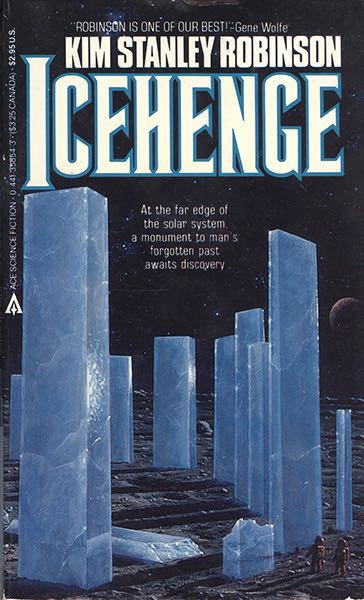Icehenge
Reviewed date: 2003 Jun 21
Rating: 3
262 pages
Icehenge plot synopsis: a mid-26th century expedition to Pluto discovers a monument--a ring of ice blocks arranged in a pattern reminiscent of Stonehenge. The discovery provokes investigations into possible origins of structure, leading to serious political ramifications for the ruling Committee on Mars. Dr. Hjalmar Nederland proposes a widely accepted theory that Icehenge was constructed by a group associated with the attempted Mars revolution of 2248, but as the implications of this theory lead to embarassment for the ruling autocracy, one begins to wonder why he is being permitted to publish his work--and even helped in his research--and who would stand to gain from the public dissemination of this knowledge. And then the mystery deepens...
But I can't give away too much. Suffice it to say that until about halfway through the book I was fairly certain of what the truth was, and then I was rudely awakened to a myriad alternate possibilities. It kept me guessing until shortly near the end. A decent and well-written book; my only complaint is that Robinson spells things out too clearly in the last few pages; sure, it helps those who may not have *got* the story, but it took too much of the fun out of it to have the author spell everything out.
I'm not going to call this a great book; it is less intriguing than The Chronoliths and more satisfactory (but less original or groundbreaking) than Helliconia Spring. It is competently and clearly written, certainly not as artistic as Hyperion but rather easier to understand. (You get the feeling you're listening a story, whereas in Hyperion it feels more like watching an artist at work.) In the end, Icehenge captured my attention and I feel I can recommend it.
